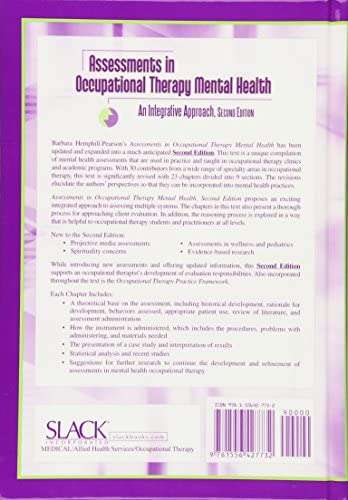Every time a new client walks in, a timer starts ticking.
It counts down not just to the end of the session, but to the moment when the client will conclude therapy — whether it’s months from now or at the end of this very visit.
Because you can’t know when that moment will be, you might feel like you’re running out of time to turn this person’s life around before you even know anything about them.
And you wouldn’t be wrong.
If you’re like a lot of practitioners who use acceptance and commitment therapy (ACT), the visit might go something like this:
After your introductions, the client’s problems spin out one after another: crippling anxiety, chronic pain, substance abuse, among other things. You do your best to stay present while simultaneously trying to ask the right questions, assess the case, and think of an effective exercise.
An opportunity to target acceptance arises, but you don’t know how to interrupt their story or introduce the concept without seeming dismissive.
So you let them talk. And that timer keeps on ticking.
The session ends before you get to an intervention. All you can do is hope the client comes back.
Focused acceptance and commitment therapy, known as FACT, is a new model of brief psychological therapy that can be used by GPs, nurses and other health professionals to help people manage distressing emotions, memories and symptoms.
What is FACT?
FACT is a new model of brief therapy that is a highly condensed version of a well-established longer-term treatment called Acceptance and Commitment Therapy. FACT uses acceptance and mindfulness strategies to help people transform their relationship with unwanted, distressing experiences, such as disturbing thoughts, unpleasant emotions, painful memories or uncomfortable physical symptoms.
The solution becomes the problem
FACT does not attempt to change the content of these events, as it views efforts to change, suppress, eliminate or control them as problematic. It is the attempt to make those changes that becomes the problem in terms of anxiety and low mood.
Sometimes, attempts to control distressing thoughts, emotions, associations, memories and sensations (known as TEAMS) result in constrained and unworkable patterns of behaviour. The person becomes stuck and their minds begins to spin and become busy.
The problem-solving role of the mind is to make value judgements, which are great for avoiding traffic when crossing the road, but not so good if you are experiencing TEAMS.
When people become preoccupied with managing these uncomfortable experiences, they cannot attend to the immediate needs of their life situation. They can become rigid, ineffective problem solvers.
A new perspective
FACT teaches people to instead simply observe and accept these experiences, to see emotions as just emotions, memories as just memories, thoughts as just thoughts and sensations as just sensations.
It teaches that since you have no control over the arrival of uncomfortable internal experiences and the unpleasant physical experiences that are often associated with them, it’s better to focus energy on what you can control, ie, your immediate behaviour or response. This may involve re-expanding the shrunken world that has developed in response to the distress.
The new perspective facilitates openness to these feelings rather than focusing on controlling them. To lead a psychologically flexible life, you need to value acceptance and willingness rather than control.
Connection with values
A second feature of FACT is its emphasis on helping people connect with personal values and engage in committed actions that are consistent with their core values. Instead of focusing on emotional control, FACT helps people focus on regaining a desired quality of life.
The commitment part of FACT involves taking actions that are values based, flexible and expanding in scope. When focused on living a values-based life, people are likely to have fewer symptoms.
A life that matters
The aim of FACT is to help clients live a rich, full and meaningful life and not specifically to remove symptoms. In brief, the FACT approach is to:
- accept what you cannot change (acceptance part) – you cannot undo your history but you can learn to hold it gently and not be defined by it
- become psychologically flexible (ie, learn to be aware and accepting of the pain that comes into your life while continuing to pursue what you value
- identify values and commit to following them (commitment part). This may require a bold move and ability to stay with any discomfort that shows up.
Learn more
Bruce Arroll
Single-case Experimental Design Evaluation of Repetitive Negative Thinking-Focused Acceptance and Commitment Therapy in Generalized Anxiety Disorder with Couple-related Worry
Volume 19 Num. 3 – October 2019 – Pages 261-276
Authors:
Francisco J Ruiz , Diana M García Beltrán , Andrea Monroy Cifuentes , Juan C Suárez Falcón
Abstract:
Young adults suffering from generalized anxiety disorder (GAD) show high levels of worry about different domains, with couple relationships being the most frequent one. Excessive worry in this domain might lead to couple dysfunction, which is associated with lower outcomes of cognitive behavioral therapy. The current study analyzes the effect of an individual, 3-session, acceptance and commitment therapy (ACT) protocol focused on repetitive negative thinking (RNT) in the treatment of GAD with couple relationship as the main worry domain. Three young adults with GAD participated in this study. A delayed multiple-baseline design was implemented. All participants completed a 5 to 7-week baseline without showing improvement trends in couple-related worry (Experiences in Close Relationships -Anxiety; ECR-A) and general pathological worry (Penn State Worry Questionnaire; PSWQ). Afterwards, they received the ACT protocol, and a 3-month follow-up was conducted. All 3 participants showed evidence of intervention effects on the ECR-A and PSWQ. The standardized mean difference effect sizes for single-case experimental design were very large for the ECR-A (g= 5.93) and PSWQ (g= 3.19). No adverse events were found. Brief, RNT-focused ACT protocols for treating GAD with couple relationship as the main worry domain deserve further empirical tests.
Key words: Acceptance and Commitment Therapy, Relational Frame Theory, generalized anxiety disorder, repetitive negative thinking, couple relationship
How to cite this paper: Ruiz FJ, García-Beltrán DM, Monroy-Cifuentes A, & Suárez-Falcón JC (2019). Single-case Experimental Design Evaluation of Repetitive Negative Thinking-Focused Acceptance and Commitment Therapy in Generalized Anxiety Disorder with Couple-related Worry. International Journal of Psychology & Psychological Therapy, 19, 3, 261-276
Key words:
No keywords specified for this article




